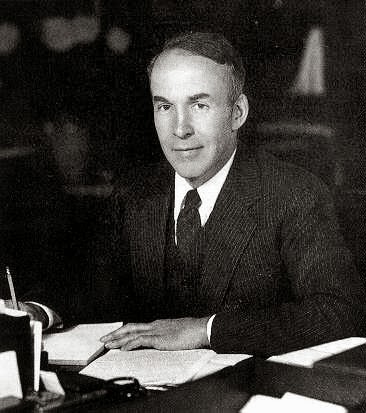Archibald MacLeish
1892 - 1982
Yesterday, my friend Friko, author of the wonderful blog, Friko's World, published a rather poignant story about the challenges facing an elderly couple who live in her village. As I read the piece, I was taken back to a special evening in the early seventies when I spent an evening in the Library of Congress listening to Archibald MacLeish read some of his poetry. At the close of the evening, MacLeish read a deeply touching poem in which an elderly couple explore the meaning of their relationship as their individual lives face the ravages of time. The last line of the poem, spoken by MacLeish with heartfelt and autobiographical certainty, has been etched in my memory for more than forty years. Perhaps it will be meaningful for others as well.
by Archibald MacLeish
They have only to look at each other to laugh —
no one knows why, not even they:
something back in the lives they've lived,
something they both remember but no words can say.
They go off at the evening's end to talk
but they don't, or to sleep but they lie awake —
hardly a word, just a touch, just near,
just listening but not to hear.
Everything they know they know together —
everything, that is, but one:
their lives they've learned like secrets from each other;
their deaths they think of in the nights alone.
She: Love, says the poet, has no reasons.
He: Not even after fifty years?
She: Particularly after fifty years.
He: What was it, then, that lured us, that still teases?
She: You used to say my plaited hair!
He: And then you'd laugh.
She: Because it wasn't plaited.
Love had no reasons so you made one up to laugh at. Look! The old gray couple!
He: No, to prove the adage true:
Love has no reasons but old lovers do.
She: And they can't tell.
He: I can and so can you.
Fifty years ago we drew each other, magnetized needle toward the longing north.
It was your naked presence that so moved me. It was your absolute presence that
was love.
She: Ah, was!
He: And now, years older, we begin to see absence not presence: what the world
would be without your footstep in the world — the garden empty of the radiance
where you are.
She: And that's your reason? — that old lovers see their love because they know
now what its loss will be?
He: Because, like Cleopatra in the play, they know there's nothing left once
love's away . . .
She: Nothing remarkable beneath the visiting moon . . .
He: Ours is the late, last wisdom of the afternoon. We know that love, like
light, grows dearer toward the dark.

